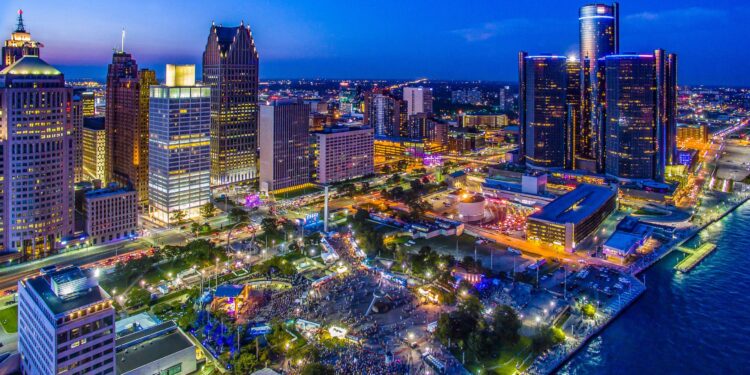Detroit recently played host to a significant central commemoration marking the 30th anniversary of the Srebrenica genocide, an event that drew community leaders, survivors, and advocates together to honor the victims and reflect on the lasting impact of the 1995 tragedy. The memorial, organized in collaboration with local Bosnian-American organizations and international partners, underscored Detroit’s role as a hub for remembrance and education about one of the darkest chapters in recent European history. This gathering emphasized the importance of dialogue, justice, and vigilance against hatred as the city pays tribute to those who lost their lives three decades ago.
Detroit Commemorates 30 Years Since Srebrenica Genocide with Central Memorial Event
Detroit came together this week in a solemn and powerful ceremony to honor the victims of the Srebrenica genocide, marking three decades since one of the darkest chapters in recent European history. The central memorial event, held at the Detroit Historical Museum, drew hundreds of participants including local officials, members of the Bosnian-American community, human rights activists, and students. Speeches highlighted the importance of remembrance and the ongoing global fight against genocide and ethnic violence.
Event Highlights Included:
- A candlelight vigil symbolizing hope and resilience
- Testimonies from survivors and families impacted by the tragedy
- Performances by local Bosnian cultural groups commemorating heritage and loss
- An exhibit showcasing artifacts and multimedia presentations on Srebrenica
| Year | Significance | Detroit’s Role |
|---|---|---|
| 1995 | Srebrenica genocide occurred | Start of annual commemorations |
| 2010 | Memorial initiatives expanded | Detroit held its first major remembrance event |
| 2025 | 30th anniversary observed | Detroit serves as central U.S. memorial hub |
Honoring Victims and Raising Awareness Through Community Engagement and Education
The Detroit memorial event brought together community leaders, survivors, and local residents in a solemn tribute to the victims of the Srebrenica genocide. Through a series of educational workshops and testimony sessions, attendees were given an opportunity to deepen their understanding of the tragic events while emphasizing the importance of vigilance against hate and intolerance. Bold initiatives such as interactive exhibits and panel discussions fostered a space where history is not only remembered but actively taught to new generations, ensuring the message of peace and human dignity remains alive.
Key components of the commemoration included:
- Community-led dialogues: Facilitated discussions aimed at healing and solidarity across diverse groups.
- Educational materials distribution: Books, pamphlets, and digital resources tailored to schools and local organizations.
- Memorial art installations: Symbolizing resilience and hope through creative expression.
- Youth engagement programs: Fostering awareness among younger participants through workshops and storytelling.
| Activity | Purpose | Audience |
|---|---|---|
| Survivor Testimonies | Personal stories to humanize history | General public |
| School Workshops | Educate youth on genocide prevention | Students ages 14-18 |
| Art & Memorial Installation | Symbolic remembrance and healing | Local artists, community members |
Calls for Strengthened International Cooperation to Prevent Future Genocides
Global leaders and human rights advocates gathered in Detroit emphasized the crucial need for enhanced international cooperation to ensure that atrocities like the Srebrenica genocide never happen again. Participants stressed that collective action, timely intelligence sharing, and robust diplomatic engagement must be prioritized to identify and respond to early warnings of mass atrocities. Coordination between governments, international organizations, and grassroots movements is vital to strengthening preventive mechanisms worldwide.
During the commemoration, experts outlined key areas for improvement, including:
- Establishing unified early warning systems with real-time data exchange.
- Increasing funding for peacekeeping missions and humanitarian interventions.
- Promoting educational initiatives fostering tolerance and historical awareness.
- Supporting legal frameworks that hold perpetrators accountable internationally.
| Focus Area | Proposed Action | Expected Outcome |
|---|---|---|
| Early Warning Systems | Collaborate on intelligence sharing platforms | Faster detection of potential genocidal threats |
| Peacekeeping Funding | Increase budget allocations internationally | Stronger and more responsive field operations |
| Legal Accountability | Enhance international courts’ jurisdiction | Improved prosecution of human rights violators |
In Summary
As Detroit concludes its central commemoration marking the 30th anniversary of the Srebrenica genocide, the city reinforces its commitment to remembrance and education. The solemn events serve not only as a tribute to the victims but also as a stark reminder of the consequences of hatred and intolerance. Through such observances, communities in Detroit and beyond continue to honor the resilience of survivors while fostering a collective resolve to prevent future atrocities. The Sarajevo Times will continue to follow developments surrounding memorial efforts worldwide.
















